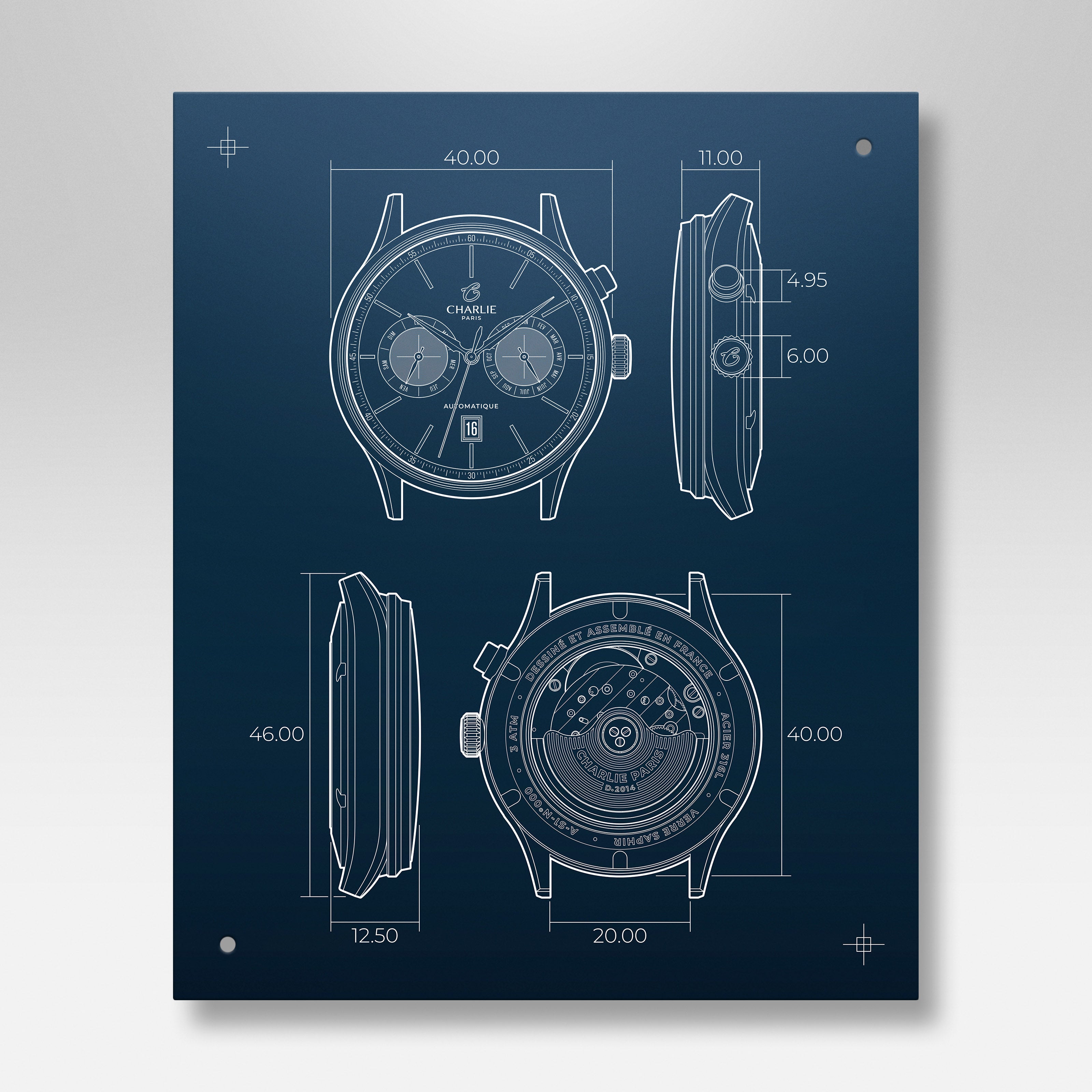
The watchmaking to the intangible heritage of Unesco
Since Wednesday, December 16, 2020, French-Swiss watchmaking and mechanical art have been listed as intangible cultural heritage of humanity. At Charlie Paris, French watchmaking know-how has a special place. Since the beginning of our adventure, we appreciate and have at heart to promote the watchmaking know-how and this recognition from Unesco encourages us to continue on this path. As a French watch brand, we work with many service providers and craftsmen in the Franche-Comté region, so we are very happy to share our passion and know-how of watchmaking with them and with all the professionals of the sector.
Watchmaking in the Unesco heritage: A Franco-Swiss project
France and Switzerland are well known for their watchmaking heritage. The Franco-Swiss area includes a great diversity of manufacturers, craftsmen, companies but also watchmaking schools, associations or even colleagues who honor and transmit the know-how and the watchmaking tradition. Watchmaking companies and more broadly enthusiasts of the watchmaking world have come together to create this beautiful project and protect the watchmaking industry. Submitted in March 2019, the candidacy was led by Switzerland in collaboration with France.
A candidacy qualified as exemplary: Unesco warmly welcomed this candidacy, considering it "exemplary" for its highlighting of a cross-border cultural heritage. Since Wednesday, December 16, 2020, Franco-Swiss watchmaking and art mechanics have been included in the intangible cultural heritage of humanity. This announcement is good news for watch enthusiasts, professionals in the sector and all watch brands, like Charlie Paris!
Watchmaking: the recognition of a living tradition
In Switzerland, watchmaking was established in the middle of the 16th century in Geneva. Jean Calvin was originally a French pastor who preferred to leave the Catholic Church to defend the ideas of the Protestant reform. Jean Calvin then took refuge in Switzerland and quickly gained influence, especially in Geneva. In 1541, through one of his reforms, John Calvin forbade the wearing of ornamental objects. Thus, jewelers and goldsmiths turned to another art, that of watchmaking. The Swiss watch industry is present on five continents. Today, it is Switzerland's third largest export sector and accounts for 95% of its production. Swiss watches are known for their very high quality and for the many luxury watches from prestigious houses. If Swiss watchmaking enjoys an unparalleled worldwide reputation, France is also a watchmaking country known for its know-how. Contrary to what one might think, the French watchmaking industry has existed for a very long time. If you want to know more about the history of French watchmaking, we have written an article on the subject.
- In 1492, the mechanical watch appeared in France and automatic watches for men and women also began to appear.
- The revocation of the Edict of Nantes in 1685 will be a real scourge for the French watchmaking excellence. There was a massive emigration of French Protestant watchmakers abroad, taking with them their knowledge and manufacturing secrets. The clock industry has existed in the Franche-Comté region since the end of the 17th century, in particular thanks to the Comtoise clock.
- At the end of the 18th century, the Swiss clock industry was hit by unemployment. Swiss clockmakers moved to Besançon, which became the capital of French clockmaking. Today, Burgundy-Franche-Compté is the leading watchmaking region in France.
Besançon kept a preponderant role in watchmaking until the crisis of the 1930s, but the sector gradually declined after the end of the Second World War. Nevertheless, watchmaking remains very present in the city. Today, even if the number of workshops is only 89, representing 2,119 jobs in the region, Besançon keeps indelible traces of this past: the Dodane watchmaking factory, the Time Museum, the monumental clock of the Viotte train station or the Besançon Watchmaking School, which has become a nationally recognized institution, testify to this.
Watchmaking, between tradition and innovation at Charlie Paris:
Today, many watch brands are innovating in the watchmaking sector and bringing a new breath of fresh air to French watchmaking. At Charlie Paris, we offer contemporary watches that respect the unique know-how of French watchmaking, all at a fair price thanks to a direct sales process, without intermediaries. As you can see, Charlie Paris is at the crossroads of innovation and respect for tradition. All Charlie Paris watches are assembled near Besançon. We manufacture both women's and men's watches, whether they are quartz women's watches or automatic women's watches.











Leave a comment
This site is protected by hCaptcha and the hCaptcha Privacy Policy and Terms of Service apply.